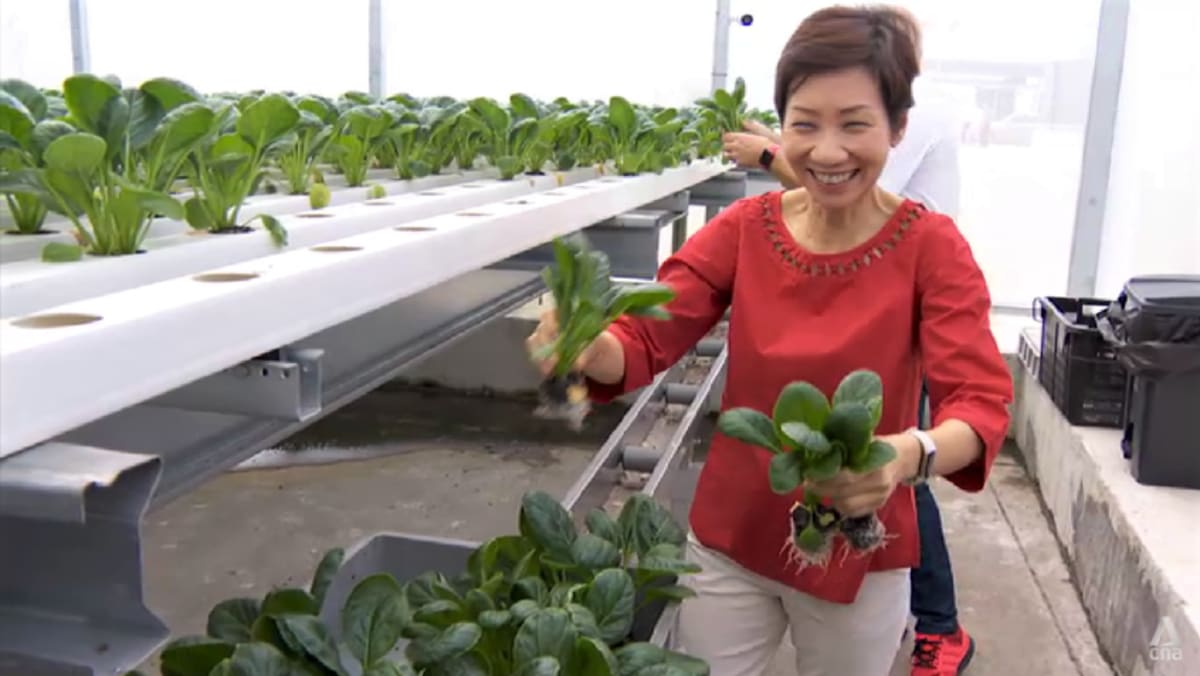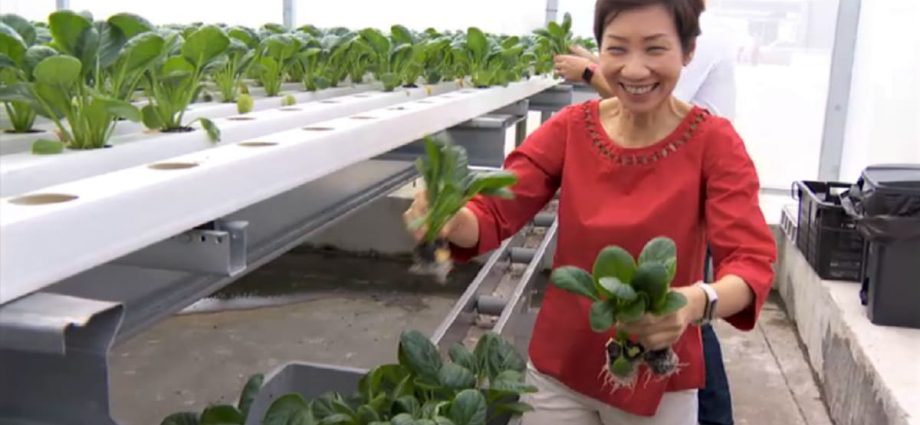
Singapore imports more than 90 per cent of its food source, and it is critical for the country to proactively find ways to ensure the resilience of its food supplies, Minister for Sustainability and the Environment Grace Fu said in a speech at the launch of the facility.
While the worst of the COVID-19 pandemic appears to be over, geopolitical tensions and extreme weather events caused by climate change can continue to cause disruptions in global food production and supply, Ms Fu said.
“It is with this purpose in mind that we put forward our ‘30 by 30’ goal. This will provide us with a significant buffer against food supply disruptions. The ‘30 by 30’ goal is an ambitious one, especially since we’re striving to achieve it through highly productive, climate-resilient, and resource-efficient means,” she said.
BUYING LOCAL PRODUCE
ComCrop is the first of seven recipients to utilise SFA’s “30 by 30” grant to expand, automate and employ technology to boost yields and efficiency at its hybrid greenhouse facility in Woodlands.
The “30 by 30” initiative aims to build up Singapore’s capability to meet 30 per cent of the country’s nutritional needs with food produced locally by 2030.
Apart from being prepared for supply disruptions from international food sources, close proximity from farm to table means local produce is fresher and more environmentally sustainable, said Ms Fu, calling for consumers to support local products.
“It is fresh, it incurs less transportation and therefore less miles on the road,” she said.
“Higher local demand for homegrown produce will keep our farms commercially viable and spur our farmers to become more productive. Your support of local produce will go a long way in strengthening Singapore’s food security.”
Local greens are marked by bright one- and two-star signs on their packaging, with one star representing produce as homegrown, and two stars providing additional quality assurance that the farmers’ management practices have been audited and certified to produce food in an environmentally friendly and socially responsible manner.
Mr Barber echoed Ms Fu’s call to buy Singapore-grown food. Consumers’ support is vital in ensuring the advancement of local farms, he said.
“Basically our food security in the future is determined by our purchasing decisions in the supermarket,” he added. “So if we keep buying local, that means farms like us can invest more, we can grow more, and then you’ll have more variety.”

